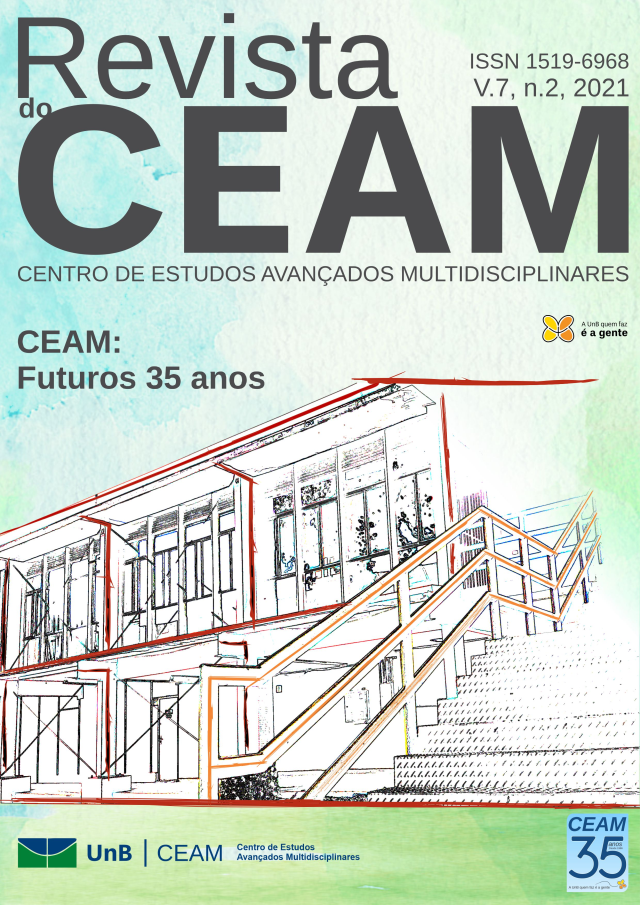The guarantee of the right to education for teenagers of IFG Águas Lindas in the context of the coronavirus pandemic
DOI:
https://doi.org/10.5281/zenodo.5985049Keywords:
pandemic, right to education, integrated high school, public school, student assistanceAbstract
This paper aims to present the challenges and strategies used by the Federal Institute of Education, Science and Technology of Goiás (IFG), Águas Lindas campus, to guarantee the right to education of adolescents enrolled in high school integrated with technical courses in the context of the coronavirus pandemic. Faced with the difficulties imposed by the pandemic, IFG Águas Lindas developed collective actions, especially in the areas of teaching and student assistance, in order to minimize the effects of the pandemic among students and to guarantee the right to education of adolescents enrolled in high school. Through participant observation and interview with civil servants from the Student Assistance Coordination, Pedagogical Support Coordination and from the Care Centre for People with Specific Needs, it was possible to identify that, besides the offer of emergency remote learning through synchronous meetings and asynchronous activities offered on the Moodle platform or printed material, the IFG also offered connectivity aid for internet fees; loans of technological devices and SIM cards for internet access. It also offered pedagogical and psychological support to students with difficulties, published notices to encourage family farming, supported the making of handmade protective masks to be distributed to the community, besides encouraging the local economy. The 'Solidariza IFG' and 'Águas Lindas Solidária' campaigns also took place in this context, in coordination with various community sectors, for the delivery of staple food baskets. These initiatives, with assistance and pedagogical nature, contributed to the low rate of evasion of adolescents from IFG Águas Lindas in the context of the coronavirus pandemic. However, with the return of classroom activities, the challenge of facing the violations of rights aggravated by the pandemic context is still present. The need to work in an increasingly integrated way to a network of protection, with strengthened structure, is crucial to support the numerous demands that go beyond the school competence, but directly interfere in ensuring the right to education, which is its biggest responsibility.
Downloads
References
BEHRING, E. BOSCHETTI, I. Política Social: Fundamentos e História. São Paulo: Cortez, 2011.
BRASIL. Constituição (1988). Constituição da República Federativa do Brasil. Brasília, DF: Senado Federal: Centro Gráfico. Art. 205, 1988.
BRASIL. Lei 8.069, de 13 de julho de 1990. Dispõe sobre o Estatuto da Criança e do Adolescente e dá outras providências. Diário Oficial da União, Art. 53. Brasília, 16 jul. 1990.
CAVALCANTE, V. F.; KOMATZU, B. K.; MENEZES FILHO, N. A. Desigualdades educacionais durante a pandemia. São Paulo: Insper, 2020.
CODEPLAN. Pesquisa metropolitana por amostra de domicílios - PMAD - 2017/2018 Águas Lindas de Goiás. Companhia de Desenvolvimento do Planalto Central, Brasília, Brasil. 2019
LESSA, C. A articulação do Sistema de Garantia de Direitos da Criança e do Adolescente na forma da rede. MARTINHO, C.; SCHERER-WARREN, I.; LESSA, C.; ADULIS, D.; WILSON-GRAU, R. Barueri, SP: Instituto C&A, 2011. p. 87-127.
MINAYO, M. C. Pesquisa social: teoria, método e criatividade. Petrópolis: Vozes, 2001.
PALU, J. A Crise do Capitalismo, a Pandemia e a Educação Pública Brasileira: reflexões e percepções. In: MAYER, L.; PALU, J. (Org) Desafios da educação em tempos de pandemia. Cruz Alta: Editoração, 2020.
Downloads
Published
How to Cite
Issue
Section
License
Copyright (c) 2021 Maraisa Bezerra Lessa, Wallace Pinto da Silva Filho, Willian Caldas de Jesus

This work is licensed under a Creative Commons Attribution 4.0 International License.
Autores mantém os direitos autorais e concedem à Revista do CEAM o direito de primeira publicação, com o trabalho simultaneamente licenciado sob uma Licença Creative Commons - Atribuição 4.0 Internacional, permitindo o compartilhamento do trabalho com reconhecimento da autoria do trabalho e publicação inicial nesta revista.









